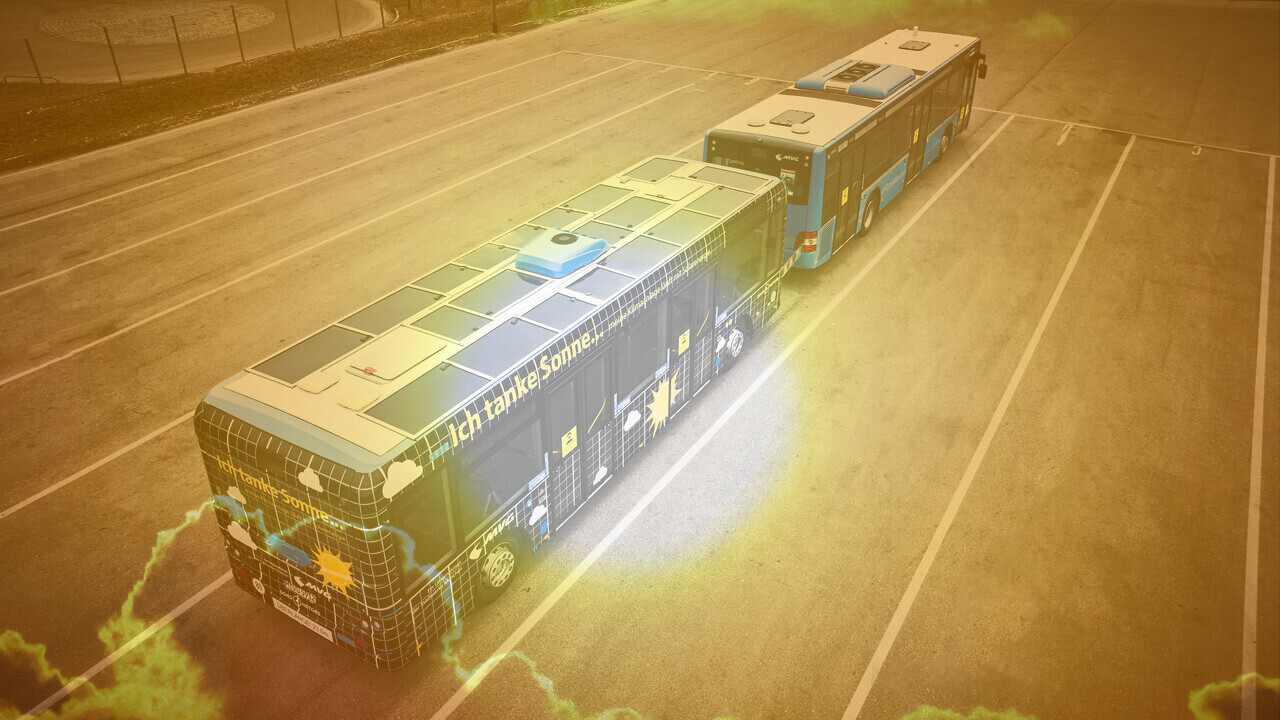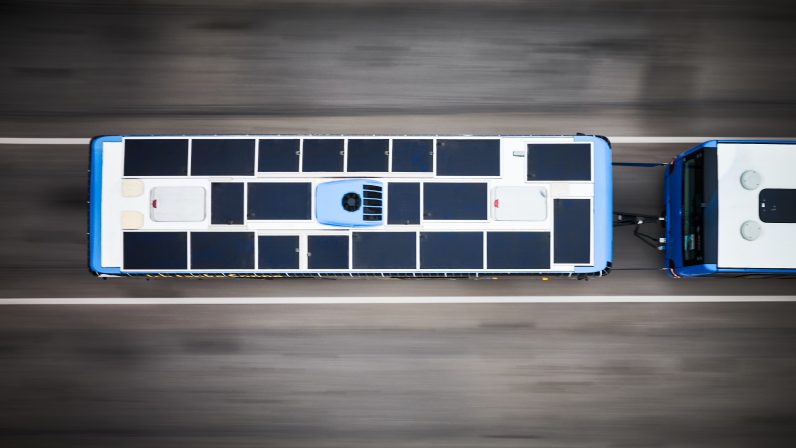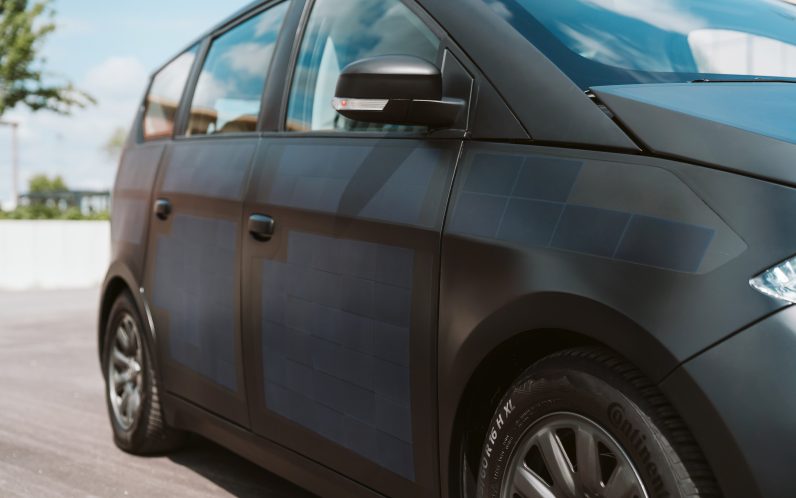
The question I am always asked when I mention anything related to solar energy is this: why isn’t the technology as ubiquitous as the sun?
So today I am excited to share the news that solar-power transport company Sono Motors is deploying its tech on a bus for the first time — in partnership with the Münchner Verkehrsgesellschaft (Munich Transport Company, MVG).
You probably know Sono Motors from its work building Sion, the solar electric car. The Sono solar technology replaces traditional paint with proprietary integrated solar panels that can form for various applications. Unlike vehicles with rooftop solar panels alone, it comes with 456 solar half-cells on the hood, fenders, sides, roof, and rear.
I sat down with Laurin Hahn, co-founder, and CEO, to ask about the shortage of solar deployment up until now, and find out about the company’s latest partnership.
He explained that the reasons for solar’s slow start have been cost and inefficiency:
10 years ago, solar was just too expensive and too inefficient. Now, we have seen prices come down by 80% to 90%, and efficiency going up by roughly 40% to 50%.
Buses get the solar treatment
Today the company is deploying its solar technology as a diesel bus retrofit solution. As Hahn notes, “There are thousands of buses in existence. And they will not be put away tomorrow.” So, the first step is to reduce the diesel consumption of existing bus fleets.
Sono Motors’ solar bus trailer will soon hit the roads in the Munich metropolitan area, offering savings of up to 2,500 liters of diesel per year for a medium-sized fleet of 300 buses. This could lead to an annual local CO2 saving potential of more than 6.5 metric tonnes per bus.
Each trailer comes with 20 semi-flexible special photovoltaic (PV) modules, providing over 2,000 watts of energy to power the vehicles’ battery and electrical loads, such as heating, ventilation, air conditioning, and the trailer’s steering system.
Besides saving diesel, the additional electricity stabilizes the battery’s energy supply. This extends its service life and reduces maintenance costs. The energy generated is monitored online using integrated software.

Sono Motors has already signed more than ten letters of intent and contracts with companies such as MAN, easymile, and ARI Motors since the beginning of 2021.
The Sono solar technology is suitable for integration into existing vehicles and during the production phase of manufacturing.
When e-buses are factory-equipped with Sono’s solar technology, the additional range can be generated immediately through solar energyon the roof and sides.
Hahn explained that this reduces the standstill times for charging processes and protects the battery through a constant charging process. “As a result, the e-bus can operate longer.”
The Sion solarEV is still on track

The company still plans to roll out the solarEV, publishing news of their development progress on their website each fortnight.
Hahn shared, “We’ve been very transparent about our car development, including what’s going well and what’s going not so well.” The company is so far unaffected by the industry’s supply chain woes, but is monitoring the situation closely.
The Sion costs a mere €28,500 ($31,600). The company expects to start production in the first half of 2023. There are over 15,000 reservations valued at $385 million.
It’s a great day for solar tech, and it’s a great day for the environment.
Get the TNW newsletter
Get the most important tech news in your inbox each week.





